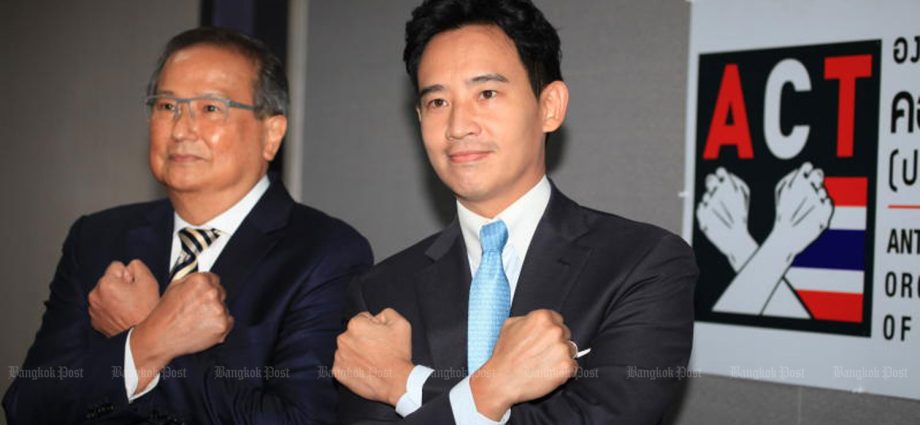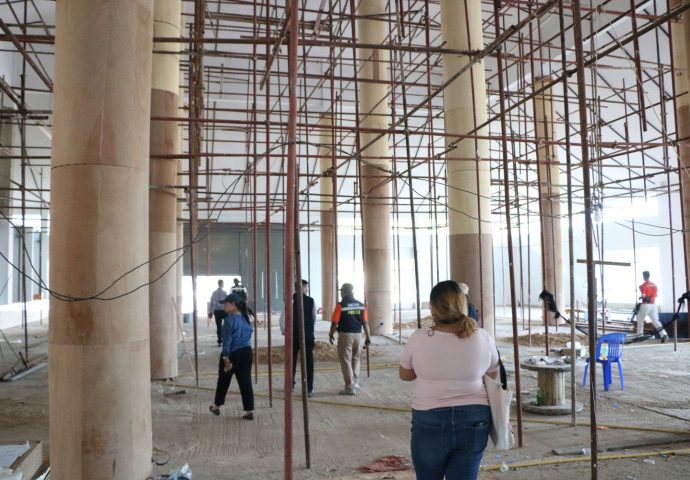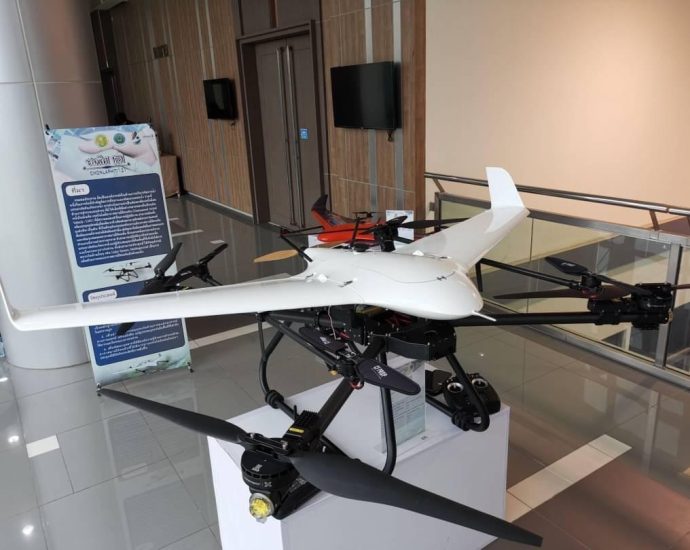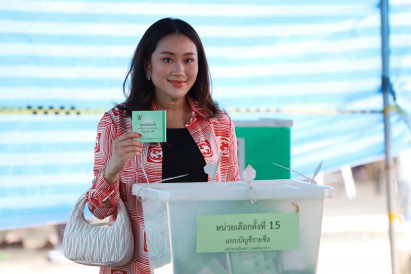Senate probes Pita’s assets
Aspiring PM faces daunting new hurdle

Move Forward Party (MFP) leader Pita Limjaroenrat may face more hurdles in his bid to become the next prime minister as a Senate panel is now looking into issues related to his assets and debts declaration.
This could challenge his qualifications and persuade more senators not to vote for him in parliament.
Senator Seree Suwanpanont, in his capacity as chairman of the Senate committee on political development and public participation, said on Friday the committee had launched a further probe into Mr Pita’s qualifications and his eligibility to contest the May 14 election.
“The committee is seeking information from relevant agencies. It involves issues related to Mr Pita’s assets and debt, which are linked to his qualifications,” Mr Seree said.
On June 8, Mr Seree said political activist Ruangkrai Leekitwattana, a Palang Pracharath Party (PPRP) member, had petitioned the Election Commission (EC) to look into whether a land plot held by Mr Pita in Prachuap Khiri Khan’s Pran Buri district is an asset he inherited from his father, who died in 2006.
Mr Ruangkrai also asked the poll agency to seek information regarding Mr Pita’s assets and debts declaration from the National Anti-Corruption Commission for use in the probe, Mr Seree said.
A source said the latest issue related to Mr Pita involves Oil For Life Co, the business run by Mr Pita’s family, and Mr Pita served as its executive between Oct 5, 2006, and March 6, 2017.
The company runs a loan debt of 460 million baht, and it filed for rehabilitation with the Central Bankruptcy Court after several financial institutions, which are its creditors, took court action to seek debt repayments, the source said.
Mr Seree went on to say 20 senators had expressed support for any prime ministerial candidate from a party that won the most seats in the election.
“But most of those senators did not really mention Mr Pita’s name. As far as I know, some of them who did mention the name of Mr Pita [have subsequently] had a change of heart.”

It involves issues related to Mr Pita’s assets and debt, which are liked to his qualifications, says Seree Suwanpanont, a senator.
The EC is also investigating Mr Pita’s alleged ineligibility to contest the election due to his holding of iTV Plc shares at the time.
Mr Pita, the MFP’s sole prime ministerial candidate, stands accused of being ineligible to run because he held 42,000 shares in iTV, which is believed by some critics to be a running media company, when he registered his candidacy in the past election.
Mr Pita has denied the allegation, saying he only served as executor of the family’s inherited shares.
EC member Thitichet Nuchanart said the EC would invite iTV executives and Mr Pita for questioning.
Mr Thitichet said the EC would also examine more evidence related to the claims, including the record of iTV’s latest shareholder meeting and the transcribed minutes.
A discrepancy between the official minutes from the shareholders meeting and a video of the April 26 event has created further controversy about iTV’s status as a running media company.
Mr Thitichet said more information regarding Mr Pita’s assets declaration made with the NACC would also be needed for the EC’s investigation.
Pol Maj Gen Supisarn Bhakdinaruenart, an MFP list-MP, said the party’s executives instructed members to stop responding to senators who have been critical of the party.
However, he said he believed that talks are underway to seek their support and there are positive signs Mr Pita will gain enough traction to become the next prime minister.
The 250 senators appointed by the now-defunct coup-engineer, the National Council for Peace and Order, can join MPs in electing a prime minister in parliament.
Meanwhile, Pheu Thai secretary-general Prasert Chantararuangthong said his party and the MFP will thrash out which party’s candidate gets the House speaker post on Wednesday.


















